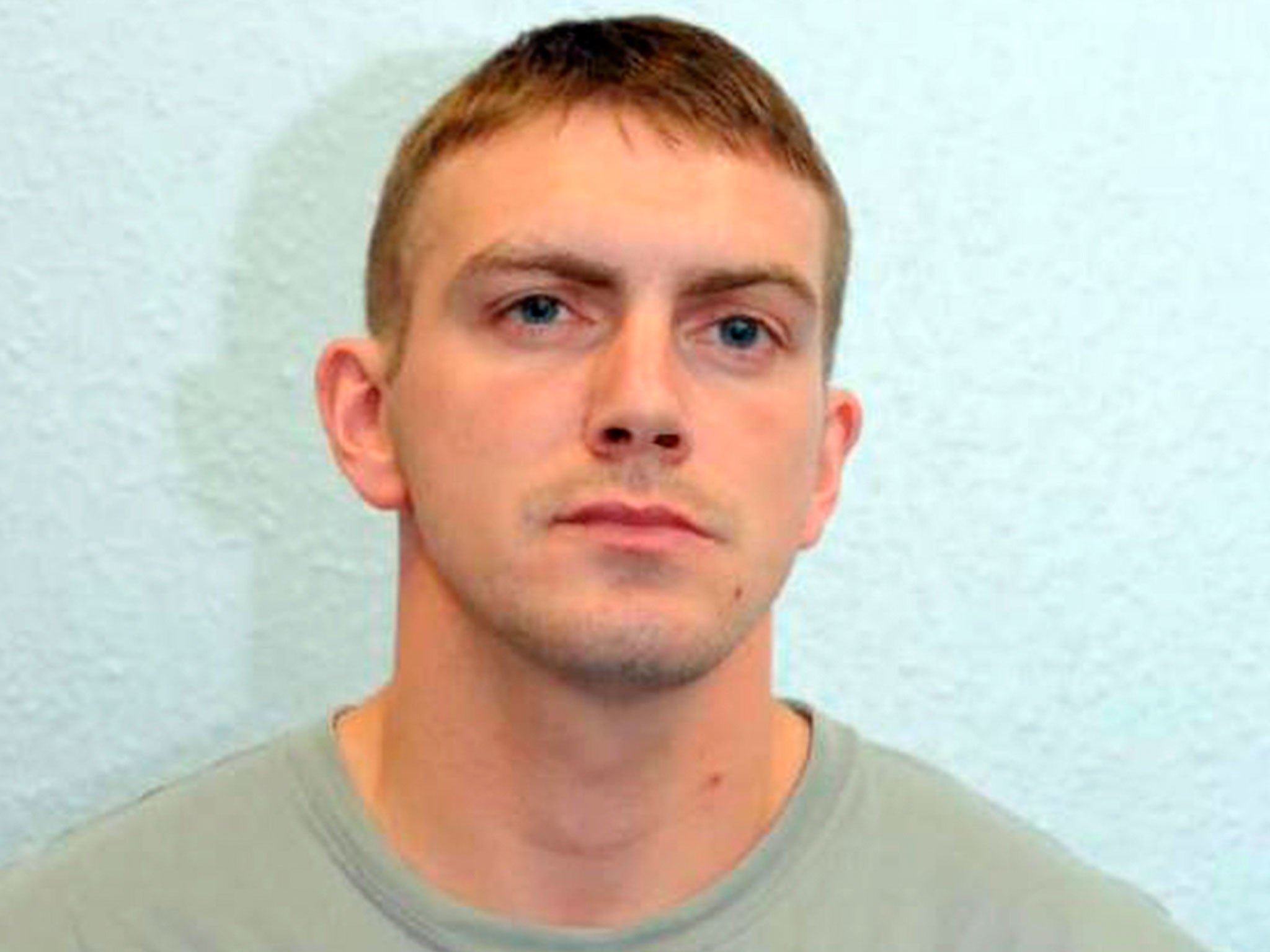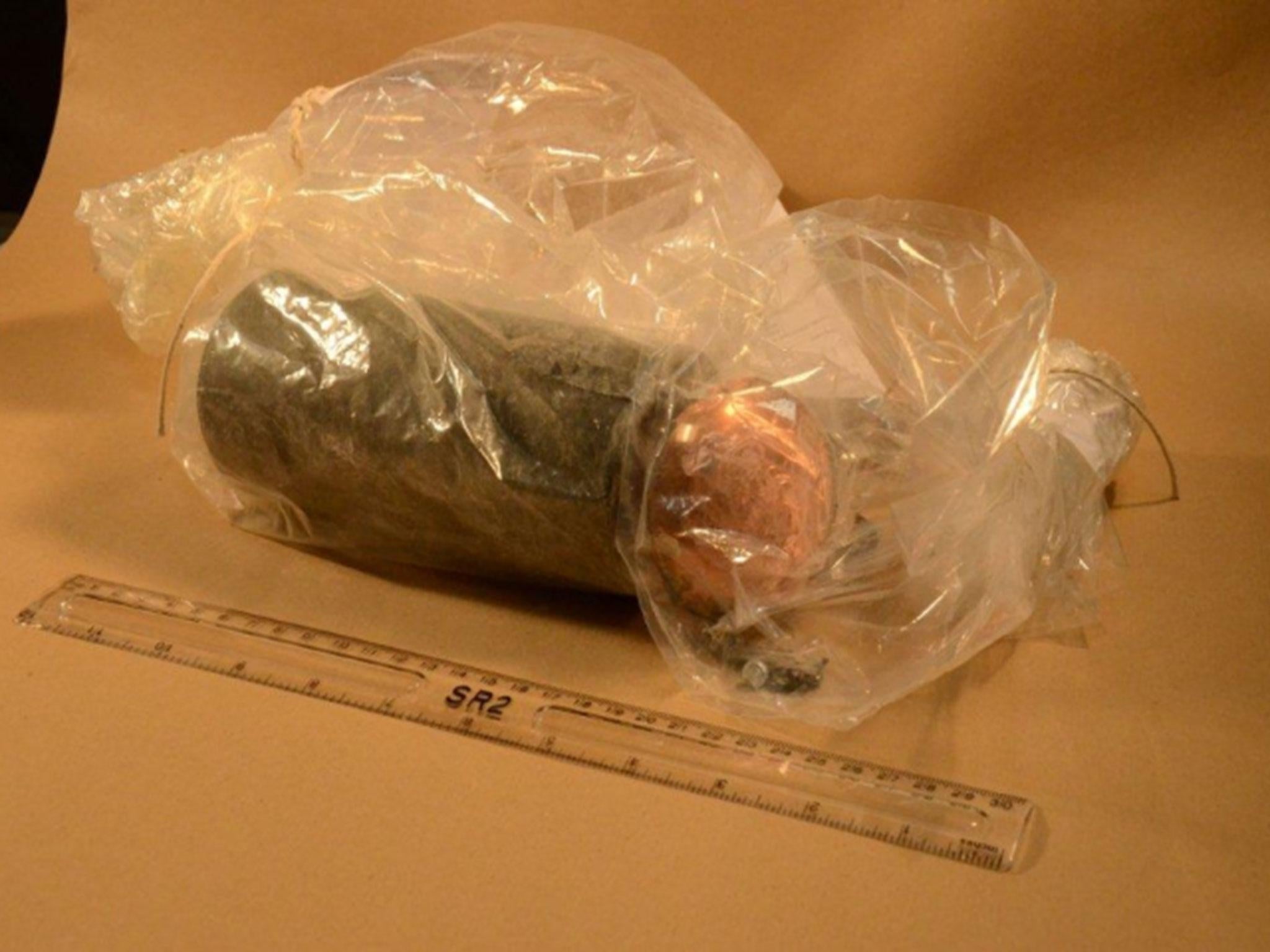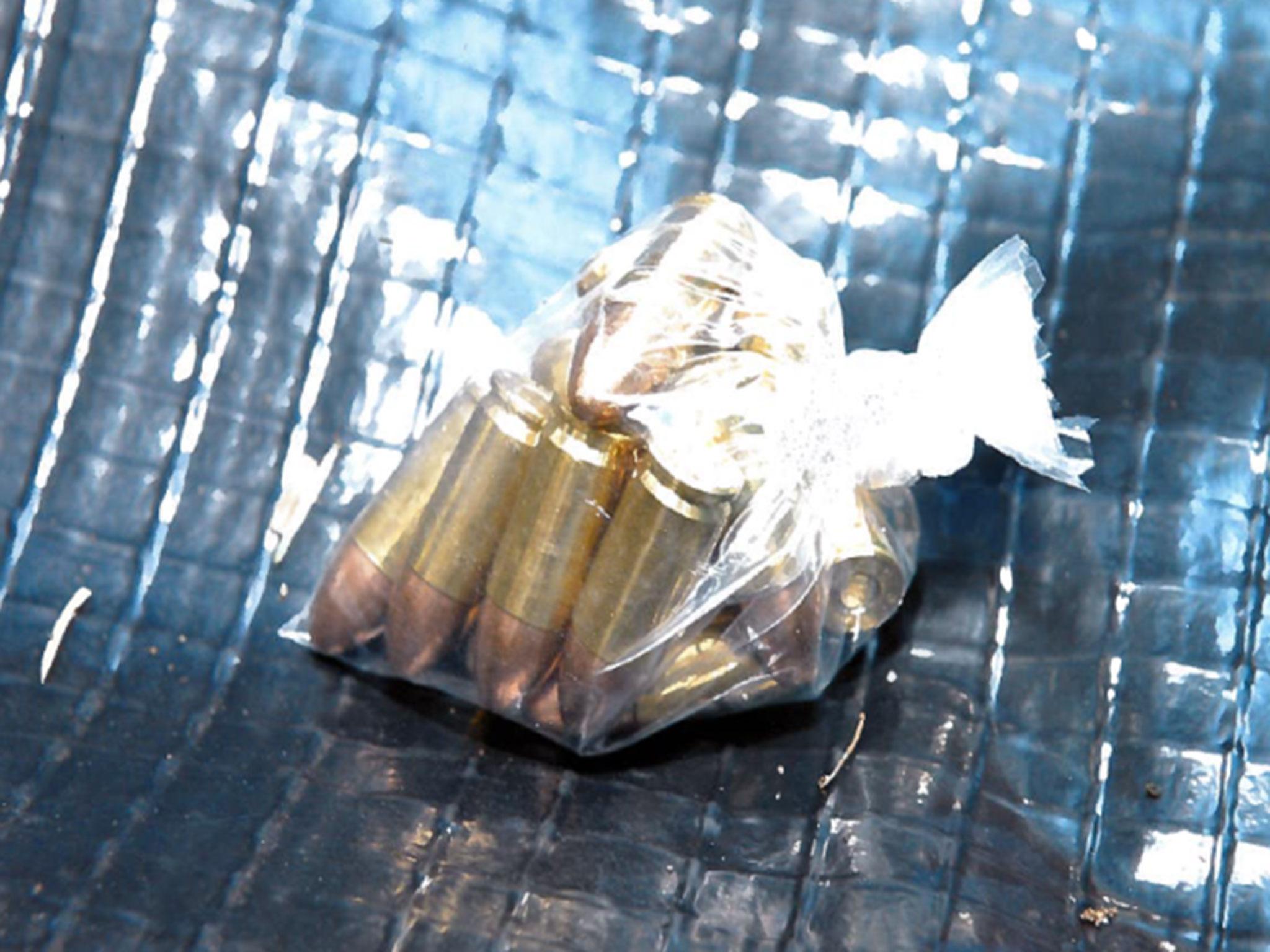Ciaran Maxwell: Former Royal Marine who made bombs for Irish republicans jailed for 18 years
Terrorist infiltrated British military

A former Royal Marine who made bombs for dissident Irish republicans has been jailed for 18 years.
Ciaran Maxwell stashed anti-personnel mines, mortars, ammunition and 14 pipe bombs - four of which were later used - in 43 purpose-built hides at eight locations in Northern Ireland and England.
Bomb-making materials were found in barrels and buckets buried in the ground as well as an adapted Police Service of Northern Ireland (PSNI) pass card, a PSNI uniform and a police stab-proof vest.
The 31-year-old, who is originally from Larne in County Antrim and was with 40 Commando based at Norton Manor Camp in Taunton, Somerset, at the time of the offences, pleaded guilty to preparation of terrorist acts between January 2011 and August last year, possessing images of bank cards for fraud and possessing cannabis with intent to supply.
He also wrote a "to do" list on which he identified over 300 targets, including police and military buildings as well as named individuals in Northern Ireland and Britain.

PSNI Detective Chief Inspector Gillian Kearney said Maxwell used his military know-how to accumulate and construct his devices, and described the infiltration of the military by a republican terrorist as "very unusual" and "certainly the first case of its kind in recent years".
Sentencing, Mr Justice Sweeney said: "I'm sure that you were and will remain motivated by dissident republican sympathies and a hostility to the UK."
Maxwell, described by the judge as an "inveterate record-keeper", showed little emotion as the sentence was handed down.
His plot was foiled when members of the public stumbled across his weapons hides by chance.
DNA evidence found on parts of the haul led them to Maxwell, who was on the national database due to his alleged involvement in an unrelated assault case.
Paul Hynes QC, defending, told the court his client was not ideologically driven and would not have used violence for a cause.
He said it was Niall Lehd, said to be a member of the Continuity IRA (CIRA), who was the "instigator" of a joint venture with Maxwell, who had "no long-lasting republican ideology".
Maxwell denied joining the Royal Marines in 2010 with the intention of infiltrating them.
He claimed he faked his support for the dissidents' cause because he was "frozen" with fear and believed old connections wished "serious ill" on him and his extended family in Northern Ireland and England.
The court also heard he had been brought up as a Catholic in the largely loyalist town of Larne and suffered a fractured skull as a 16-year-old when he was the victim of a sectarian attack.

Police fear weapons Maxwell constructed may still be in circulation, ready for deployment by dissident republicans.
Four of his pipe bombs have already been used by the violent extremists in Northern Ireland - two detonated, without causing injury - but detectives acknowledge others might still be out there.
Detectives believe he essentially operated as a lone wolf who, despite links to the Continuity IRA, acted largely independently of the renegade organisation.
Commander Dean Hayden, of the Met's Counter Terrorism Command, said: "There is no evidence to suggest Maxwell himself was directly involved in the deployment of the items but he was the bomb maker.
"A significant number of dangerous items were prevented from getting into the hands of terrorists, hence the public relationship in fighting terrorism is crucial."

Maxwell denied he joined the Royal Marines with the intention of infiltrating them from the outset, insisting his criminal exploits only started when his friendship deepened with an old acquaintance who was in the Continuity IRA.
He claimed things then spiralled out of control and, as his lawyer put it, he got "in above his head".
But detectives are not convinced by this explanation.
DCI Kearney said: "It's hard to say - we don't know that definitely.
"Whatever his motivation was in joining the Royal Marines, quickly he became involved in the engineering of devices and very dangerous activity which made him a very dangerous individual."
Additional reporting by PA
Bookmark popover
Removed from bookmarks